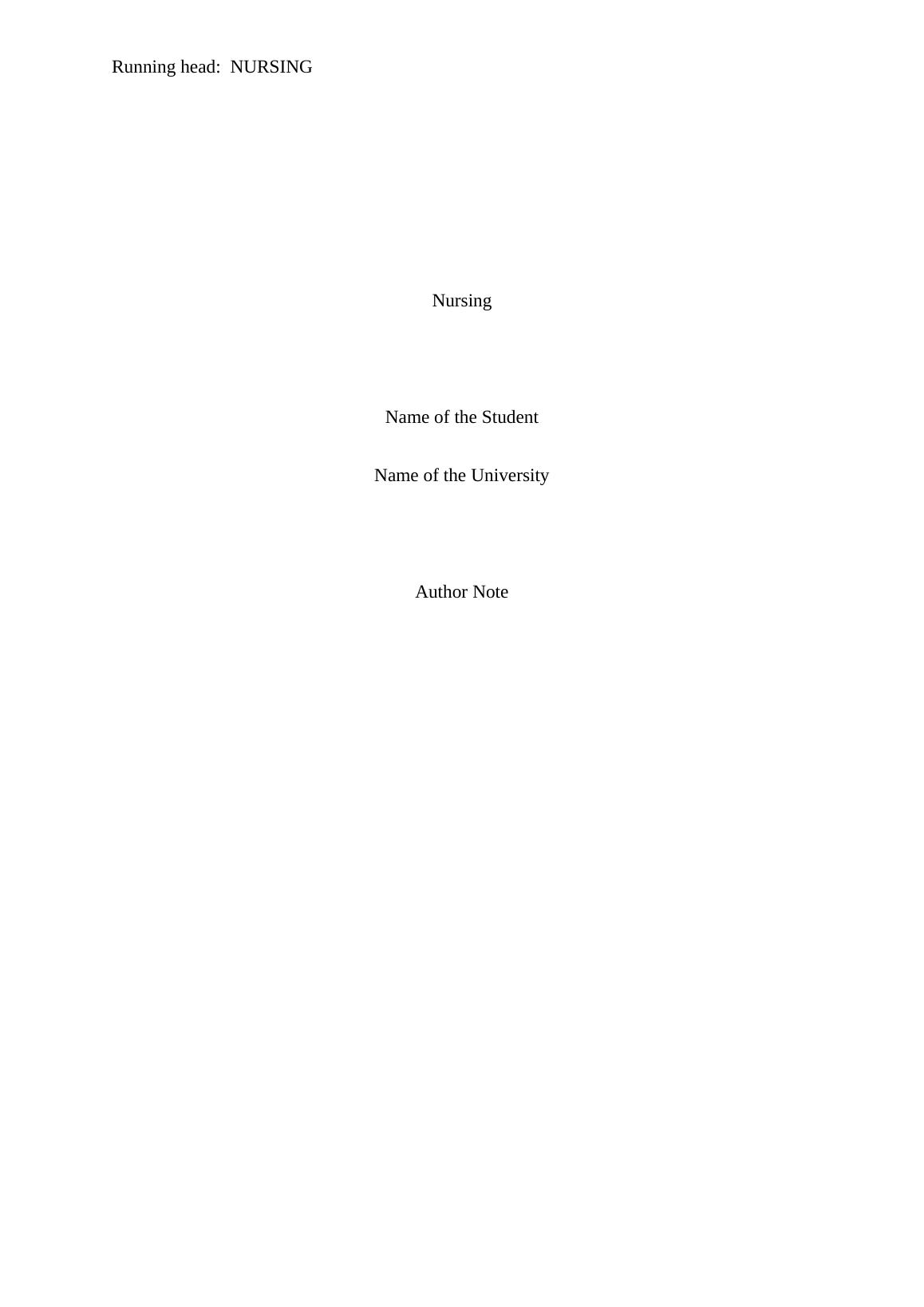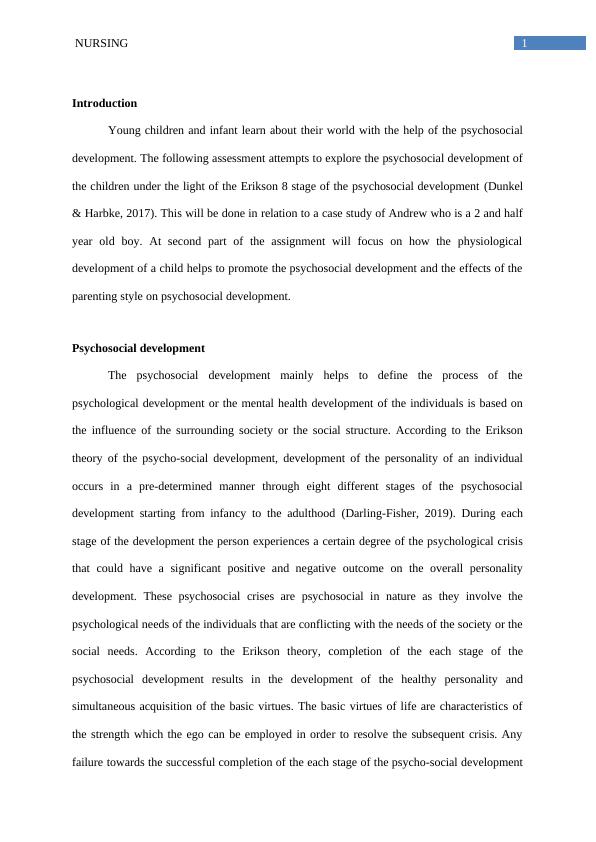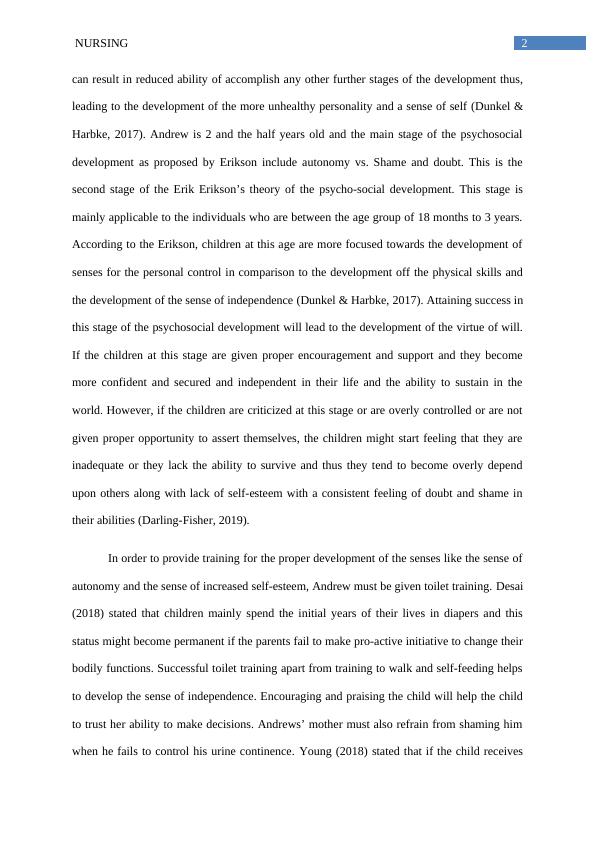Psychosocial Development of Children: A Case Study of Andrew
6 Pages1733 Words358 Views
Added on 2022-10-14
About This Document
This article explores the psychosocial development of children based on Erikson's theory. It includes a case study of Andrew's psychosocial development and how physiological development and parenting style impact psychosocial development. The article emphasizes the importance of proper toilet training, physical activity, and authoritative parenting style for the healthy psychosocial development of children.
Psychosocial Development of Children: A Case Study of Andrew
Added on 2022-10-14
ShareRelated Documents
End of preview
Want to access all the pages? Upload your documents or become a member.
Psychology of Young Adults: Good and Bad Decisions
|14
|3258
|390
Psychosocial Development in Children: Normative Components and Influencing Factors
|7
|1605
|136
Ego Integrity versus despair: The last stage of Erickson's theory
|3
|447
|469
HLTH2105 - A Psychological Perspective of Health
|3
|431
|130
Comparison Between Erikson’s Psychological theory and Bowlby’s Attachment Theory
|6
|1604
|423
Theory of Erikson | Psychology
|5
|694
|16



